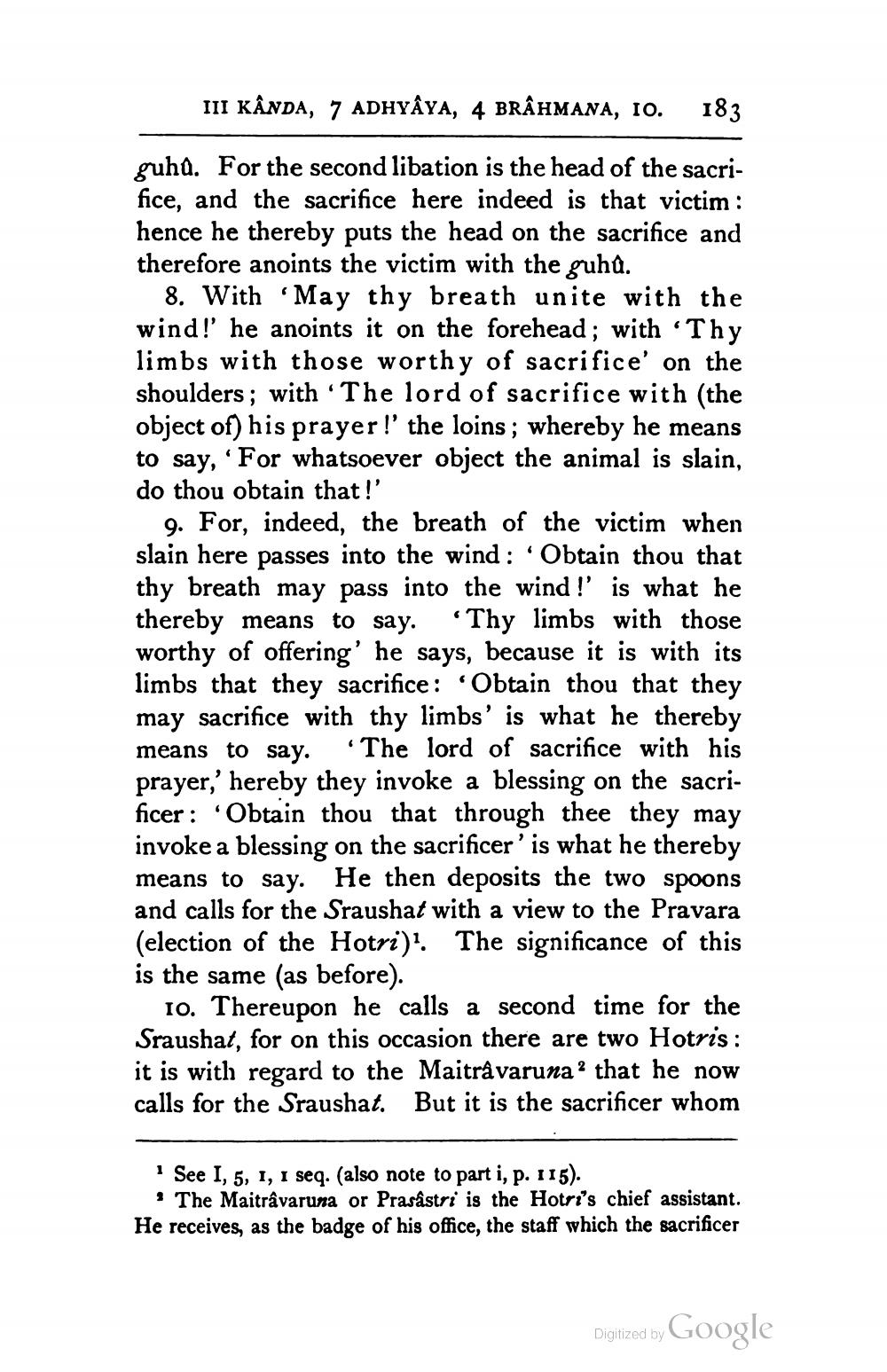________________
III KÂNDA, 7 ADHYAYA, 4 BRÂHMANA, 10.
183
guha. For the second libation is the head of the sacrifice, and the sacrifice here indeed is that victim: hence he thereby puts the head on the sacrifice and therefore anoints the victim with the guhů.
8. With ‘May thy breath unite with the wind!' he anoints it on the forehead; with 'Thy limbs with those worthy of sacrifice on the shoulders; with 'The lord of sacrifice with (the object of) his prayer!' the loins; whereby he means to say, 'For whatsoever object the animal is slain, do thou obtain that!'
9. For, indeed, the breath of the victim when slain here passes into the wind : Obtain thou that thy breath may pass into the wind !' is what he thereby means to say. “Thy limbs with those worthy of offering' he says, because it is with its limbs that they sacrifice: Obtain thou that they may sacrifice with thy limbs' is what he thereby means to say. The lord of sacrifice with his prayer,' hereby they invoke a blessing on the sacrificer: 'Obtain thou that through thee they may invoke a blessing on the sacrificer' is what he thereby means to say. He then deposits the two spoons and calls for the Sraushat with a view to the Pravara (election of the Hotri)? The significance of this is the same (as before).
10. Thereupon he calls a second time for the Sraushat, for on this occasion there are two Hotris: it is with regard to the Maitråvaruna ? that he now calls for the Sraushat. But it is the sacrificer whom
See I, 5, 1, 1 seq. (also note to part i, p. 115). · The Maiträvaruna or Prasastri is the Hotri's chief assistant. He receives, as the badge of his office, the staff which the sacrificer
Digitized by Google




